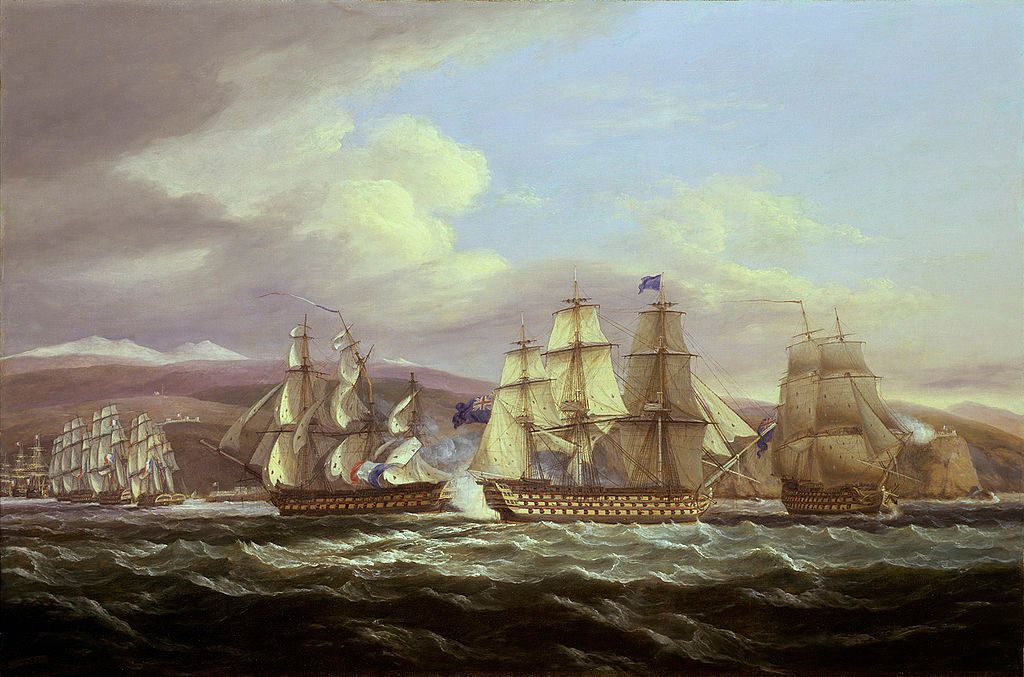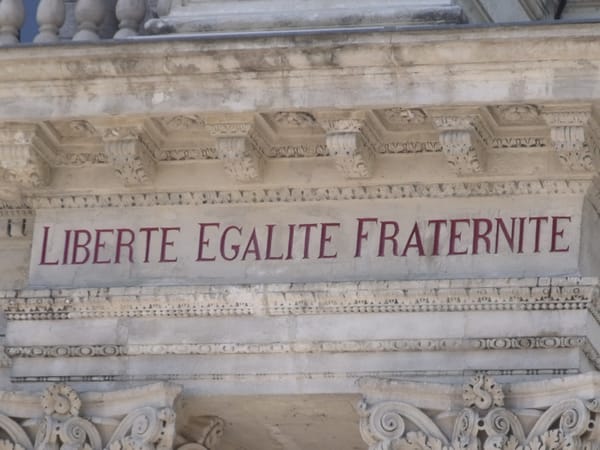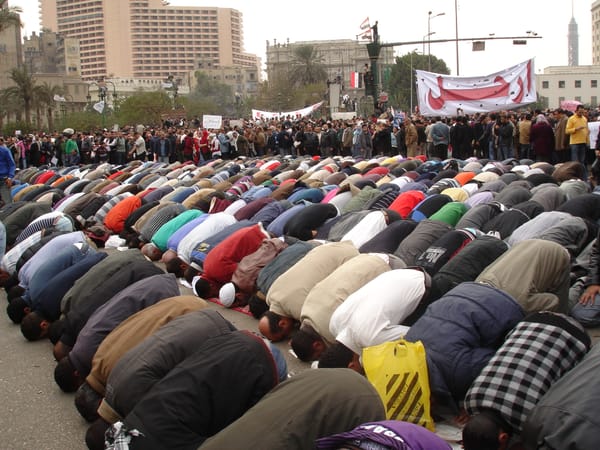Sanctions: Modern Barbarism Disguised as Diplomatic Responsibility

Throughout the course of history, organized groups of people have turned to isolating their adversaries from resources when faced with conflict. They generally do so through two main mechanisms; the rather primitive, yet timeless blockade and its diplomatic successor, the sanction. Appearances aside, deprivation lacks the obvious moral superiority to outright violence that its advocates frequently claim for it. The sanction in particular manages to combine the brutal consequences of the blockade with a greater ineffectiveness at achieving its desired ends. Whatever one may say about the ancient practice of blockading a city, it impacted all who resided within. The sanction has merely allowed the deprivation of a nation’s population in a manner easily circumvented by that nation’s elites. With sanctions appraised through this lens, how can one expect them to improve international cooperation any better than their more outwardly militaristic predecessor?
Blockades, which historically have often included the siege as well, are the first and most ancient of the methods of isolation; they can be understood from examples at the Siege of Syracuse, the Fall of Constantinople, all the way up to the British response to Nazi-controlled Greece. The Berlin Blockade (Airlift) of 1948-49 is another example, albeit an exception in the midst of the other three. By surrounding a location with troops, ships or a combination of both, cities or nations could be starved out, becoming slowly depleted of resources; this submission was an omnipresent final resort for a strong attacking group against an entrenched, but more thinly stretched or isolated group.
In each of the aforementioned examples, the blockade’s purpose was to suffocate a city, nation-state or country in the hopes of succeeding in the particular objective. In the first three examples, both land and sea were accounted for in achieving this endeavor in the midst of war; the fourth example, while in the midst of no shooting war, illustrates why blockades are no longer widely seen or used as primary options in enforcing the isolation of peoples from resources.
The adoption of aviation throughout human civilization by the middle of the 20th century aided in rendering the blockade a less relevant means of control over an opposition and their resources; the sky was truly a theatre to control, just the same as the land and sea. The organization of greater international arbitration, the United Nations, played a tremendous part in doing away with the blockade for the most part as well; more civilized methods were envisioned to follow.
The sanction is the blockade matured; they act in much the same way, but begin in different places. Sanctioning works when a nation, or group of nations, agrees that another nation is doing something detrimental towards human rights, or their individual or internationally shared interests. Once this is determined, the offended nation or nations either limit, or eliminate importation and exportation of any number of goods with the accused nation.
Just as in any century before our own, this action is meant to pressure the accused “violator nation” into compliance with whatever measures the offended nation or nations seek. This is done by inhibiting industrial and commercial development, the attainment of resources or technology, and the success of the ruling establishment in forwarding their agenda. This pressure is supposed to effect change from two directions; internal pressure from a disgruntled and underprivileged society, as well as the external pressure from the international community.
Unfortunately, circumstances rarely unfold in such a neat, storybook-like-manner; in cases like Cuba, Vietnam, Venezuela, North Korea, and others, the results of sanctions are highly visible, even where they no longer exist. These sanctions never result in reconciling any regime abuses, while further widespread suffering occurs partly because of the depravity of the sanctions themselves.
Meanwhile powerful, tyrannical centralized regimes and their despots accrue and amass wealth and resources anyway; they do this through black-market back channels, while acknowledging that the international community chooses to attempt suffocation, not compromise with them. They decry the state the international community leaves their people in, despite their own misdeeds; the PR is an anti-American enthusiast’s dream as well.
In the International community’s attempt to create more humane measures of global peacekeeping, they have fallen short in their goal of diminishing barbarism from the earthly theatre; the blockade and siege live on, and in a potentially less effective form than before as well.
Sanctions have in fact only led to greater suffering and isolation for the populations they’re ideally supposed to be liberating. Worse still, the leaders they’re designed to pressure, diminish and punish are usually none the worse for wear, oftentimes even enhanced in the eyes of their own people despite their treachery. That this system of arbitration has left countless autocratic regimes in power for decades on end further demonstrates these points.
In Iran, we currently see one of the best examples of such a circumstance; while America and the international community choose the continued administration of sanctions to Iran in the midst of widespread COVID-19 infection and economic downturn, the Iranian perspective is far more bleak. There is likely unimaginable suffering and death behind the veil of Iran’s blatant theocracy; the mistrust of America that this type of callous treatment engenders Iranians with has to be empathized with no matter your circumstance.
What is gained by pursuing what is essentially a campaign of genocide on the people of Iran? Only hatred and repulsion in the future. What is gained by dropping the sanctions, of which have proven ineffective in curbing Iran’s current theocratic fascism, thereby allowing Iran to fight for their lives with the resources available through the international market? It is not difficult to fathom the potential goodwill created between Iran and America by such an act; diplomatic leverage would surely swing towards America as well, who would appear to be acting with both empathy, as well as greater international responsibility.
For after all, it was America who withdrew from the Iran Nuclear Agreement; it was also America who illegally assassinated one of the leading political and military figures of Iran, Qassem Soleimani. Therefore this olive branch, because it can be extended to all nations, has the potential to do wonders for America in the quest to improve international relationships with all nations, not only Iran.
Without this innovation, the relationship between America and Iran remains in a state of extreme decay. This does little good for any of the parties involved; America continues to bear the brunt of apathy from much of the world as innocent people, not the political or governmental figures, stand to suffer the most from continued sanctions and COVID-19.
Far from bringing nations closer to compromise without violence, sanctions have ultimately proven a much greater threat to people across the globe than blockades. Because the sanction is no physical barrier, but an agreement by which entire swaths of the world are cordoned off from one another, punishment can last far longer than any army’s blockade; look at Cuba.
And while this style of punishment lasts, the people of these sanctioned nations are maintained in a sort of wretched stasis; the people suffer simultaneously as victims of both an oppressive regime domestically, as well as international oppression, whose purpose is supposedly aimed at the decimation of the aforementioned domestic oppression. While local civilians are too weak to internally rise up against the entrenched despots of their government, in large part due to a lack of resources, these oppressed peoples also find themselves unable to trust “enabler” nations across the world that allow for them to starve in the name of liberation, eventually.
In dealing with nations that remain obstinate to international cooperation, nations like the United States and those in Europe must reimagine how best to effect change amongst them. Like the blockade before it, the subtle depravity of sanctions offers few solutions to either disaffected populations or the issues more broadly faced in the modern era by all peoples; cooperation, in some form, is key to undoing the damage done by sanctions as we move forward beyond them. Because regime change by traditional war and sanction have proven unreasonable in maintaining global order since the founding of the United Nations, all that remains to this end is the further development of diplomatic innovations. History has shown us the damage done by isolating and alienating disaffected peoples under the rule of demagogues and fascists; it has the potential to be nearly world-ending.
Featured image is Blockade of Toulon, 1810-1814, by Thomas Luny




